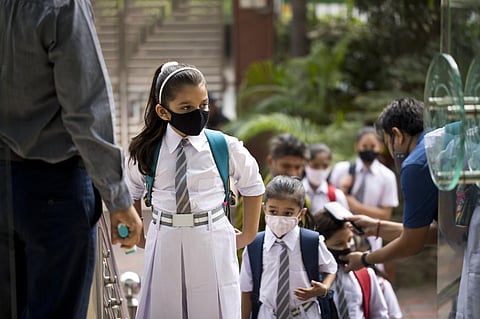

The COVID-19 pandemic caused a massive collapse in human capital at critical moments in the life cycle, primarily affecting children and young people in underdeveloped and developing countries, according to a new report by the World Bank.
The development of millions in low- and middle-income countries has been derailed, according to the first analysis of global data on young people who were under the age of 25 at the onset of the pandemic.
The report, Collapse and Recovery: How COVID-19 Eroded Human Capital and What to Do About It, analysed global data on the pandemic’s impacts on young people at key developmental stages: early childhood (0-5 years), school age (6-14 years) and youth (15-24 years).
Today’s students could lose up to 10 per cent of their future earnings due to COVID-19-induced education shocks. The cognitive deficit in today’s toddlers could translate into a 25 per cent decline in earnings when these children are adults, World Bank found.
Due to the pandemic, preschool-age children in multiple countries have lost more than 34 per cent of learning in early language and literacy and more than 29 per cent of learning in mathematics compared to pre-pandemic cohorts.
In many countries, even after schools had reopened, preschool enrollment had not recovered by the end of 2021; it was down by more than 10 percentage points in multiple countries. Children also faced greater food insecurity during the pandemic.
COVID-19 also dealt a heavy blow to youth employment, the paper found. Forty million people who would have had a job in the absence of the pandemic did not have one at the end of 2021, worsening youth unemployment trends. Youth earnings contracted by 15 per cent in 2020 and 12 per cent in 2021.
New entrants with lower education will have 13 per cent fewer earnings during their first decade in the labour market, the report found. Evidence from Brazil, Ethiopia, Mexico, Pakistan, South Africa, and Vietnam showed that 25 per cent of all young people were neither in education, employment, nor training in 2021.
Human capital — the knowledge, skills, and health that people accumulate over their lives — is key to unlocking a child’s potential and enabling countries to achieve a resilient recovery and strong future growth, said a press note by the international financial institution.
Evidence-based policy options to recover from current losses and forestall future ones were highlighted by the report.
The World Bank stated:
The pandemic shuttered schools and places of employment and disrupted other key services that protect and promote human capital, such as maternal and child health care and job training.
The pandemic and school closures threatened to wipe out decades of progress in building human capital, World Bank Group President David Malpass stated in the press release.
“Targeted policies to reverse the losses in foundational learning, health, and skills are critical to avoid jeopardising the development of multiple generations,” he said.
The window for addressing setbacks in human capital accumulation is small, as gaps in the early stages of the life cycle tend to widen over time, the statement added. Without urgent action, the pandemic also threatens to deepen poverty and inequality.